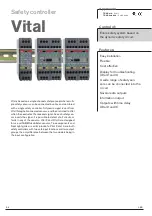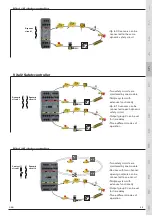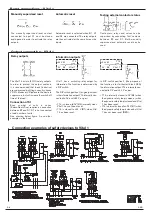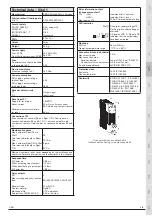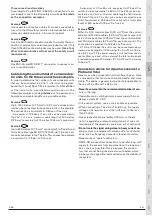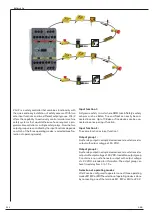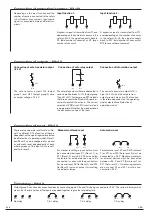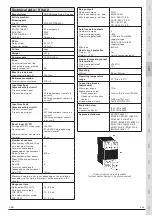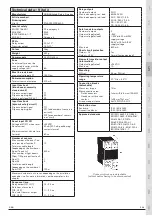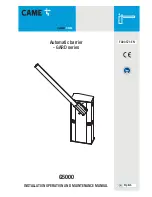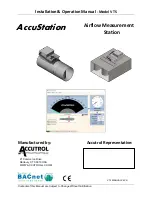
ABB
5:8
Output connection – Vital 1
The Vital 1 has two (2 NO) safety outputs.
In order to protect the output contacts
it is recommended that loads (inductive)
are suppressed by fitting correctly chosen
VDR’s, diodes etc. Diodes are the best arc
suppressors, but will increase the switch-off
time of the load.
Relay outputs
Information outputs
Reset connections – Vital 1
Testing external contactor status
Automatic reset
Manually supervised reset
The manually supervised reset contact
connected to input X1 must be closed
and opened in order to activate the relay
outputs.
Automatic reset is selected when B1, X1
and X4 are connected. The relay outputs
are then activated at the same time as the
inputs.
B1
Connection examples of safety devices to Vital 1
Contactors, relays and valves can be
supervised by connecting ‘test’ contacts
between B1 and X1. Both manually
supervised and automatic reset can be
used.
Vital 1 has a switching relay output for
information. The function is determined by
a DIP switch.
The DIP switch position 1 (original position)
is the information output Y14 internally con-
nected to 0V and +24 V as per:
• Y14 is closed to 0V (B2) internally when
Vital 1 has not been reset.
• Y14 is closed to +24 V (B1) when Vital
1 has been reset.
In DIP switch position 2 (the purpose of
the function is to start/restart block, RES)
the information output Y14 is internally con-
nected to 0V and +24 V as per:
• Y14 is internally closed to 0V (B2) when
the dynamic safety loop is open or when
the dynamic safety loop is closed and Vital
1 has been reset.
• Y14 is internally closed to +24 V (B1) when
the dynamic safety loop is closed but Vital
1 has not been reset (RES).
Vital 1
Y14
B1
B2
0V
+24V
0V
Vital 1
Y14
B1
B2
0V
0V
+24V
0V
Connection of S1
Even number of units in series
(Eden+Spot+Tina) requires a connection
between B1 and S1. S1 is not connected
at odd number of units.
See drawing below figure A and other
examples in the book

